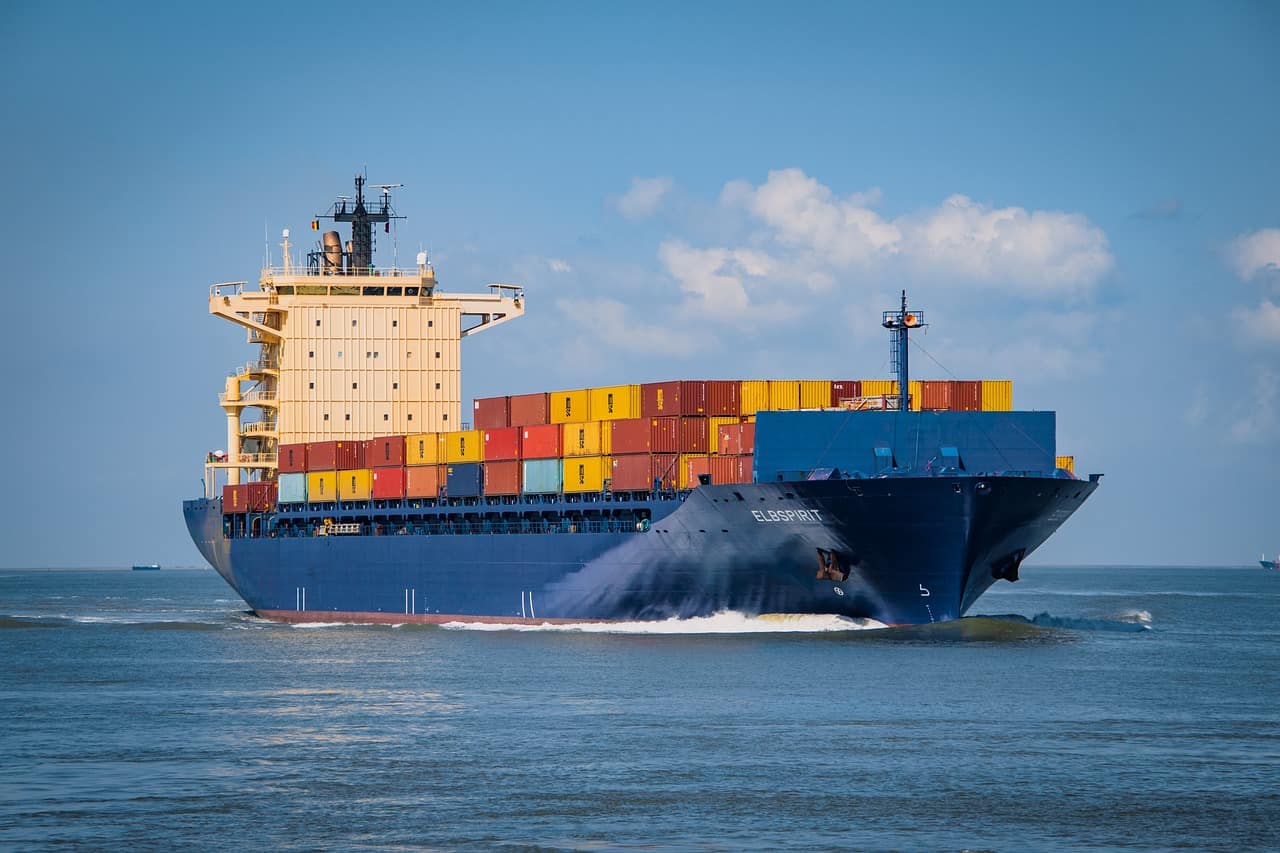Introduction to Ship Moving Services
Setting sail on the high seas is an exhilarating adventure, but what happens when it’s time to move your ship from one location to another? Whether you’re a maritime enthusiast or a commercial vessel owner, finding safe and reliable ship-moving services is crucial.
But fear not! We’re here to guide you through navigating the vast ocean of options.
In this comprehensive guide, we’ll explore different types of ship-moving services, discuss the benefits of hiring professionals, and provide essential tips for preparing your vessel for transport.
Types of Ship Moving Services
Regarding moving ships, different services are available depending on your specific needs. Whether you’re looking to transport a vessel internationally or domestically, professional ship movers have you covered.
1. International Ship Moving: If you must move your ship across international waters, hiring an experienced and reputable international cruising service is crucial. These companies specialize in navigating the complexities of customs regulations, import/export laws, and logistical challenges associated with transporting vessels overseas.
2. Domestic Ship Moving: Domestic ship moving services offer a convenient solution for those relocating their boats within the same country. These providers have extensive knowledge of local waterways and can safely transport your vessel from one location to another.
– Expertise: Professional ship movers have the knowledge and experience to handle all aspects of safely shipping your vessel.
– Licensing and Insurance: Reputable companies will be appropriately licensed and insured, giving you peace of mind knowing that your investment is protected.
– Equipment and Technology: Professional movers use specialized equipment such as cranes or hydraulic lifts for loading/unloading purposes. They also employ advanced technology for tracking and monitoring during transit.
Preparing your ship for transport is essential before handing it over to the movers:
– Cleanliness: Thoroughly clean your vessel’s interior and exterior surfaces.
– Documentation: Gather all relevant paperwork such as registration documents, permits, insurance certificates, etc.
– Secure Loose Items: Ensure everything inside the boat is secure to prevent damage during transportation.
The process of shipping a vessel typically involves several steps:
1. Consultation with Movers: Discuss essential details such as pickup/drop-off locations, timelines, special requirements (if any), etc.
2. Inspection & Documentation: The mover will conduct a thorough inspection before documenting any existing damages or issues.
1. International Ship Moving
Regarding international ship moving, there are a few key factors to consider. Driving a boat across borders involves navigating various regulations and customs processes, making it a complex task requiring the expertise of professional movers.
One of the main challenges in international ship moving is coordinating logistics across different countries and regions. This includes obtaining permits and clearances from relevant authorities, ensuring compliance with import/export laws, and arranging for transportation by land or sea.
Another aspect to consider is the documentation required for international shipping. This often includes bills of lading, certificates of origin, customs declarations, and other paperwork that must be completed accurately to avoid delays or complications.
Additionally, professional ship movers experienced in international relocations can provide valuable insights into potential challenges specific to certain regions or routes. They know weather conditions, navigational restrictions, and cultural considerations that could impact the safe transport of your vessel.
Hiring professional ship movers for your international relocation needs ensures that all these aspects are handled efficiently and effectively. Their experience handling cross-border shipments will give you peace of mind, knowing that your vessel is being moved safely and legally.
So, when planning an international ship move, consider the importance of hiring professionals specializing in this area. They will navigate through the complexities on your behalf so you can focus on other aspects of your relocation process.
2. Domestic Ship Moving
Regarding domestic ship moving, there are a few key factors to consider. First and foremost, hiring professional ship movers is crucial for ensuring the safe and efficient transportation of your vessel within the country. These experts have the necessary knowledge and experience to handle all aspects of the move.
One of the main benefits of hiring professional domestic ship movers is their familiarity with local regulations and requirements. They understand the specific permits for transporting your vessel across state lines or through certain waterways. This expertise can save you time and headaches when navigating any logistical challenges.
In addition, professional domestic ship movers have access to specialized equipment designed specifically for handling different types of vessels. Whether you’re moving a small boat or a larger yacht, these experts will have the tools necessary to secure and transport your boat safely.
Furthermore, reputable domestic ship moving services often provide insurance coverage for any potential damage during transit. Knowing you would be financially protected if something happened gives you peace of mind.
Choosing a reliable domestic ship moving service ensures that your vessel arrives at its destination safely and on time.
Benefits of Hiring Professional Ship Movers
The task can be complex and challenging when moving a ship, whether for international or domestic purposes. That’s where professional ship movers come in. Hiring experts in ship moving services offers numerous benefits that can make your life easier and ensure the safe transport of your vessel.
First and foremost, professional ship movers have the experience and expertise necessary to handle all aspects of the moving process. They understand the intricacies of transporting ships and are familiar with the rules and regulations governing such operations. This knowledge allows them to navigate potential obstacles smoothly while ensuring compliance with all legal requirements.
Another advantage of hiring professionals is their access to specialized equipment and technology for ship moving. These tools enable them to load, secure, and safely transport vessels of various sizes. They have everything from hydraulic lifts to custom cradles needed for a smooth move.
Furthermore, professional ship movers typically have extensive networks and partnerships within the industry. If required, they can facilitate logistics efficiently by coordinating with other relevant parties, such as port authorities or customs officials. Their connections help streamline processes, reduce delays, and ensure timely delivery.
In addition to logistical support, hiring experts also provide peace of mind, knowing that your vessel will be adequately insured during transportation. Reputable ship movers carry insurance coverage that protects against unforeseen incidents or damages during transit.
Outsourcing your ship-moving needs allows you to focus on other essential aspects of your project or business while leaving this specialized task in capable hands. You can trust professionals who safely understand every detail of shipping vessels from one location to another.
Factors to Consider When Choosing a Ship-Moving Service
Selecting the appropriate service provider is essential while transferring your ship. Before you decide, take into account these crucial elements.
Experience and Expertise: One of the first things you should look for in a ship moving service is their experience and expertise in the industry. A company with years of experience will better understand the complexities of transporting vessels safely and securely.
Licensing and Insurance: You must choose an appropriately licensed and insured ship-moving service. This ensures they meet all legal requirements and are held accountable for any damages or losses during transit.
Equipment and Technology: The type of equipment used by the ship movers can significantly impact the safety and efficiency of the transportation process. Look for a company with modern, well-maintained equipment and advanced technology systems to track your vessel’s progress throughout its journey.
Reputation: Take some time to research the importance of different ship-moving services before making your choice. Read customer reviews, check their ratings on trusted platforms, and ask for recommendations from other boat owners or maritime professionals.
Costs: While cost shouldn’t be the sole determining factor, it’s essential to consider pricing when selecting a ship mover. Compare quotes from different companies, but remember that quality should always be maintained to save money.
Customer Support: Good communication is vital when entrusting someone with such an essential task as shipping your valuable asset. Choose a company with excellent customer support that promptly responds to inquiries and regularly updates your shipment’s progress.
By carefully considering these factors, you can ensure that you choose safe ship-moving services that meet all your needs while providing peace of mind during this complex process.
1. Experience and Expertise
Experience and expertise should be at the top of your checklist when choosing a ship-moving service. Driving a boat is no small task, and you want to ensure that the company you hire has the knowledge and skills necessary to handle it with care.
A reputable ship-moving service will have years of experience in the industry. They will know all the ins and outs of transporting different vessel types, whether a small boat or a large yacht. This experience allows them to anticipate any challenges during the move and develop practical solutions.
Expertise is equally essential when it comes to ship-moving services. It takes specialized knowledge to secure a vessel for transport properly, ensuring it remains safe throughout the journey. Professionals who are well-versed in handling ships understand how to distribute weight evenly, connect fragile components, and navigate potential hazards.
By choosing an experienced and knowledgeable ship mover, you can have peace of mind knowing that your vessel is in capable hands. They will have encountered various scenarios before and learn to approach each situation safely.
Remember, not all companies are created equal regarding experience and expertise in ship-moving services.
2. Licensing and Insurance
The most crucial factors when choosing a vessel moving service are licensing and insurance. These two aspects ensure that your boat will be in safe hands throughout transportation.
First and foremost, you want to ensure that the vessel moving company you choose is properly licensed. This means they have met all the requirements and regulations set forth by the relevant authorities. A licensed company has undergone rigorous inspections and demonstrated competence in handling ships.
Insurance is equally important when it comes to vessel moving services. Accidents can happen, even with the most experienced professionals. Insurance coverage ensures that any potential damage or loss during transit will be covered financially.
Before hiring a vessel mover, always ask about their insurance policy and what it covers. Ensure they have adequate liability coverage for property damage and bodily injury.
Remember, licensing and insurance are not just bureaucratic formalities – they provide peace of mind, knowing that your valuable vessel is protected while being transported safely to its new destination.
3. Equipment and Technology
Equipment and technology play a crucial role in the safe transportation of ships. When choosing a vessel moving service, it is essential to consider the type of equipment and technology they have at their disposal.
Look for a company that has specialized equipment designed specifically for vessel moving. This includes high-quality cranes, trailers, and lifting gear that can handle large vessels safely and securely. The right equipment ensures that your boat is loaded onto transport vehicles properly and minimizes the risk of damage during transit.
In addition to physical equipment, technological advancements also enhance the safety and efficiency of vessel moving services. Look for companies that utilize advanced tracking systems to monitor your boat throughout its journey. This lets you stay updated on its location and ensures peace of mind, knowing it is being transported safely.
Moreover, some companies may use computer-aided design (CAD) software to create detailed plans for loading, securing, and unloading your ship. This helps optimize the process by identifying potential challenges or risks beforehand.
It is possible to select safe ship moving services that fulfill all of your requirements and offer peace of mind throughout this intricate process if you carefully weigh these factors.
Tips for Preparing Your Ship for Transport
Preparing your vessel for transport is crucial in ensuring a smooth and safe moving process. To help you get started, consider the following:
1. Clean and Inspect: Before the move, thoroughly clean the interior and exterior of your ship. This will make inspecting for any existing damage easier and prevent dirt or debris from causing further harm during transportation.
2. Secure Loose Items: Remove any loose items or equipment from the vessel and stow them securely. This includes personal belongings, electronics, and other delicate items that could be damaged in transit.
3. Disconnect Utilities: If applicable, disconnect all utilities, such as water, electricity, and gas connections, before shipping your vessel. This will minimize potential hazards during transport.
4. Drain Fluids: Empty all fuel, water, and holding tanks to reduce weight and eliminate potential leaks or spills during transit.
5. Protect Fragile Parts: Use padding or protective covers on fragile components like propellers, antennas, windows, or masts to prevent damage while on the move.
6. Document Existing Damage: Take detailed photographs of your ship’s condition before loading it onto the carrier vessel. This documentation will serve as evidence if any damage occurs during transportation.
7. Transportation Insurance: Consider obtaining marine insurance designed to transport vessels over long distances to protect against unforeseen events such as accidents or natural disasters.
By following these tips when preparing your vessel for transport with professional movers experienced in safe ship moving services, you can know that your valuable asset is well-prepared for its journey.
The Process of Shipping Your Vessel: Step-by-Step Guide
Shipping your vessel can seem daunting, but it can be a smooth and efficient experience with the right guide. Here is a step-by-step guide to help you navigate through the process.
Step 1: Research and Choose a Reliable Ship Moving Service
Start by researching different vessel moving services that specialize in transporting containers. Seek out businesses with a record of satisfied clients and years of expertise. Once you have narrowed down your options, contact them for quotes and to discuss your specific needs.
Step 2: Prepare Your Vessel for Transport
Before shipping your vessel, properly preparing it for transport is essential. This includes cleaning the interior and exterior, removing all personal belongings, securing loose items, and draining any fluids or tanks as necessary.
Step 3: Coordinate Pickup and Delivery Dates
Work closely with the vessel moving service to coordinate the best pickup and delivery dates for you. They will handle all logistics, including arranging vehicles, permits if needed, customs documentation (for international shipments), and other necessary paperwork.
Step 4: Load Your Vessel onto the Transportation Vehicle
On the scheduled pickup date, professional movers will arrive at your location equipped with specialized equipment to load your vessel onto their vehicle safely. They will take precautions, such as using straps or cradles to secure your boat during transit.
Step 5: Monitor Shipment Progress
Stay in touch with the vessel moving service throughout the shipment process for updates on your vessel’s journey progress. They should provide tracking information so you can keep tabs on its whereabouts.
Step 6: Delivery at Destination
Once your vessel arrives at its destination port or location, professional movers will unload it from the vehicle using specialized equipment similar to that used during loading. Take note of any damages or discrepancies upon delivery so they can be addressed promptly if necessary.
First and foremost, experience and expertise are crucial in ensuring safe vessel moving services. It is essential to choose a company with years of experience handling various types of boats and understanding the intricacies of transporting them safely.
Licensing and insurance are other important considerations when selecting a vessel moving service provider. Ensure that the safe ship moving services
of the company you choose possess all the licenses and certifications regulatory bodies require. Additionally, verify their insurance coverage to protect your vessel against any potential damages during transit.
Another factor worth considering is the equipment and technology used by the vessel movers. Advanced tools such as cranes, trailers, and specialized lifting mechanisms can significantly impact the efficiency and safety of shipping operations.
Preparing your vessel for transport requires careful planning and attention to detail. Consider factors such as securing loose items on board, draining water tanks if necessary, disconnecting power sources, and ensuring proper ventilation throughout transit.
FAQS
1. How much does it cost to move a ship?
The cost of moving a ship can vary depending on factors such as the size of the vessel, the distance it needs to be transported, and any additional services required. It is best to request quotes from professional ship movers to get an accurate estimate for your specific needs.
2. How long does it take to move a ship?
The vessel’s shipping duration depends on distance, weather conditions, and logistics. Domestic moves may take anywhere from a few days to several weeks. International shipments can take longer due to customs clearance and other international regulations.
3. Are there any restrictions or regulations for shipping ships?
Certain restrictions and regulations must be considered when shipping ships domestically or internationally. These may include obtaining permits, adhering to weight limits, complying with safety standards, and following environmental guidelines set by local authorities.
4. What safety measures are taken during ship transportation?
Professional ship moving services prioritize safety throughout the entire transport process. They ensure proper vessel securing using specialized equipment like cradles or supports that prevent shifting during transit. Additionally, they have experienced crews who understand how to safely handle different types of vessels.
5. Can I pack my personal belongings inside the ship during transportation?
While some companies may allow limited personal items on board during transport if necessary (such as essential navigation equipment), it is generally advised only to pack personal belongings inside the ship if permitted explicitly by the mover.
6. Are custom duties applicable while shipping internationally?
When transporting a vessel internationally across country borders or overseas destinations, customs duties might apply based on each country’s rules and regulations regarding imports/exports.










